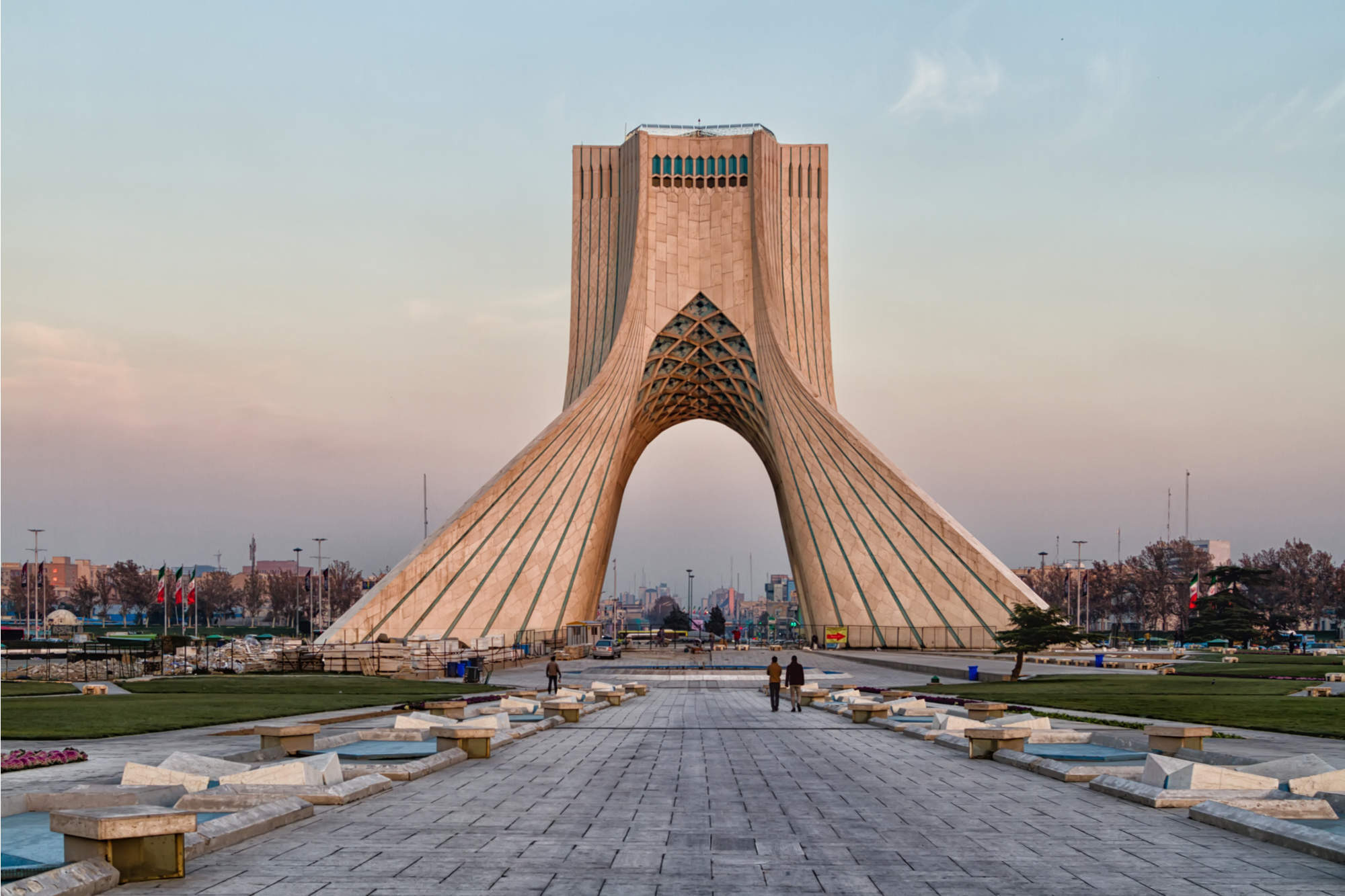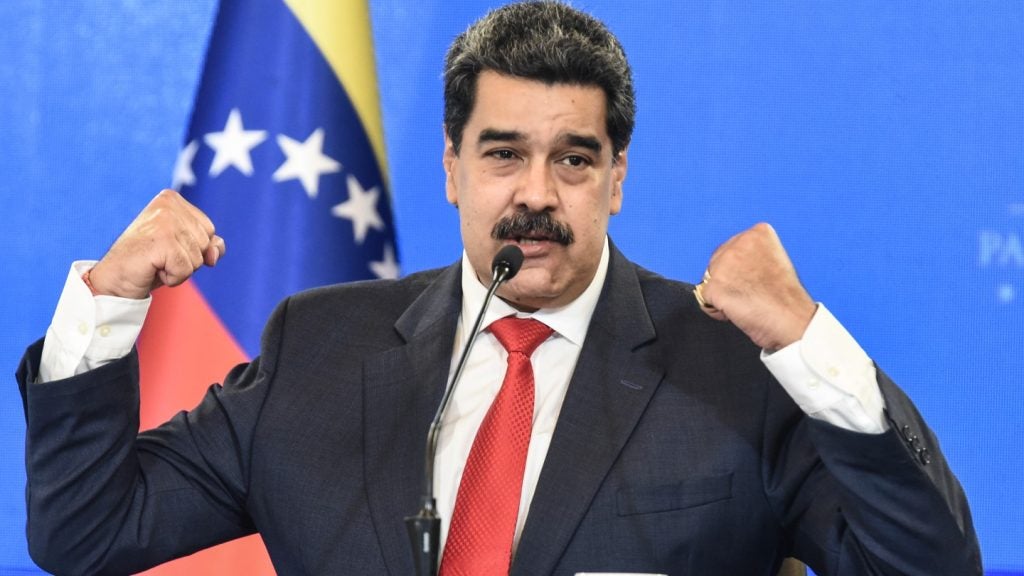
Iran is facing up to a future much like its recent past, but the new trade restrictions imposed by the US may not prove as effective this time around
In early August, a fresh round of US sanctions is due to be placed on Tehran, marking the imposition of what Washington hopes will be an economic straitjacket that the economy will struggle to escape from. Yet much will depend on the response from other world powers.
Leaders in the EU, Russia and China have been trying to ensure the survival of the nuclear deal, known as the Joint Comprehensive Plan of Action (JCPOA), in spite of the actions of the US, but the signs to date are it may prove impossible to find a solution that will satisfy Iran.
Following talks in Vienna on 6 July, Iranian officials said they were unimpressed by the proposals being suggested by the other signatories to the JCPOA.
Further negotiations are planned, but, whatever happens, tighter sanctions will soon be a fact of life for Iran once more. As one analyst put it, “It is back to square one. Life will go back to what it was before.”
Companies withdrawing from Iran
Many international companies that had re-entered the Iranian market since the JCPOA came into effect in January 2016 have already come to their own conclusions about the wisdom of staying.
How well do you really know your competitors?
Access the most comprehensive Company Profiles on the market, powered by GlobalData. Save hours of research. Gain competitive edge.

Thank you!
Your download email will arrive shortly
Not ready to buy yet? Download a free sample
We are confident about the unique quality of our Company Profiles. However, we want you to make the most beneficial decision for your business, so we offer a free sample that you can download by submitting the below form
By GlobalDataFor most, there is little value in doing business with Iran if that means potentially large fines or other sanctions from the US authorities, and a succession of large firms have announced they are preparing to pull out.
Among them are French oil giant Total and car maker Renault, aircraft manufacturers Boeing, Airbus and ATR and Japanese bank Mitsubishi UFJ Financial Group.
The loss of business is also being felt by international airlines that had revived long-dormant routes from European capitals to Iran.
With business travellers no longer queueing up to find partners in the Islamic Republic, the likes of Austrian Airlines and Dutch flag carrier KLM have been cutting back their services to Iran.
Plunging rial: Impacts to the Iranian currency
A newly despondent mood has been visible in the currency markets too, where the Iranian rial has plunged in value, despite the efforts of the government to shore up the currency.
In early April, the government announced a new unified exchange rate combining the previous official and free market rates, set at IR42,000 to the dollar. Harsh penalties were promised for anyone that dared to trade in the rial at anything other than the official rate.
Despite that, the value of the currency has continued to slide, with a newly launched currency market in Tehran reportedly booking trades at IR80,000 to the dollar on 10 July.
Public discontent over Iran trade sanctions
Economic woes are not the only problems facing Iran’s leaders. There have been several waves of protests around the country since December, many of which have been prompted by other political and environmental issues.
There have been demonstrations by farmers in Isfahan this year, for example, about the water shortages caused by decades of mismanagement of public water resources by the government.
Other protests in the west of the country near the Iraqi border were prompted by the closure of border crossings with the Kurdistan region of Iraq – a result of Tehran being unhappy about the independence vote in the northern Iraqi region last year.
The new economic pressure has contributed to and reinforced many of these other problems. Imports are becoming more expensive and the business community is showing signs of becoming restive.
In late June, shopkeepers went on to the streets of several major cities including Tehran, Shiraz, Tabriz and Kermanshah to protest.
This constituency holds a special significance in Iran – it was the demonstrations by bazaar merchants that played a critical part in the ousting of Shah Reza Pahlavi in 1979.
Looking forward: Iran’s future
Amid all the gloom, there remain a few positive signs. Iran-focused investment firm Griffon Capital reports that the main index of the Tehran Stock Exchange, the Tedpix, hit an all-time high in June, mainly due to the recent devaluation of the Iranian rial, but also because of high dividend payments.
For many Iranians, however, the future looks more troubling. How effective the regime will be in responding to these pressures remains to be seen, but it is unlikely to be helped by the significant divisions within the ruling elite.
The Iranian governing system has always been characterised by factionalism and the growing economic strains on the country is highlighting that once more.
The reformist President Hassan Rouhani is facing up to the fact that the main achievement of his first term – the JCPOA – is falling apart.
Hardliners who always opposed the idea of a negotiated compromise with the US see this as a vindication of their stance. While Rouhani and his circle still back engagement with the EU to try and find a way around the US sanctions, hardliners appear to prefer the idea of moving closer towards Russia and China; it remains unclear which argument will carry the day.
Circumventing Iran trade sanctions
Iran does at least have plenty of recent experience in how to deal with sanctions and the government has been taking action to deal with the more restrictive environment it is facing.
On 1 July, first vice-president Eshaq Jahangiri said private companies would be permitted to sell Iranian crude abroad, in an apparent bid to circumvent the new sanctions. Bartering arrangements involving Iranian crude being exchanged for other goods are also being explored.
MP Assadollah Qarehkhani told local media in early July that a committee has been set up for this purpose.
“The formation of this committee means that we will make purchases of goods conditional to purchases of Iran’s crude oil and this would limit the impacts of reductions in Iran’s oil exports,” he said, according to the local Press TV.
Strategic alliances: Iran’s friends in the international community
There is also an important difference between the coming US sanctions and what Iran has had to deal with in the past: this time Tehran looks far from friendless.
While the EU is trying to maintain cordial relations with both the US and Iran, Russia and China have more room for manoeuvre, but none of them are keen on punishing Iran given that it stuck to the terms of the JCPOA.
“President Trump’s maximum pressure policy, which he’s pursuing to strike a grand bargain with Iran, is not going to be as effective as he and many of his administration hope,” noted Ariane Tabatabai, visiting professor of security studies at Georgetown University in Washington DC.
She predicts that Tehran will try to use its relatively good relations with Moscow and Beijing to act as a bulwark against US pressure.
This article is sourced from Verdict’s sister publication www.meed.com, a leading source of high-value business intelligence and economic analysis about the Middle East and North Africa. To access more MEED content register for the 30-day Free Guest User Programme.







